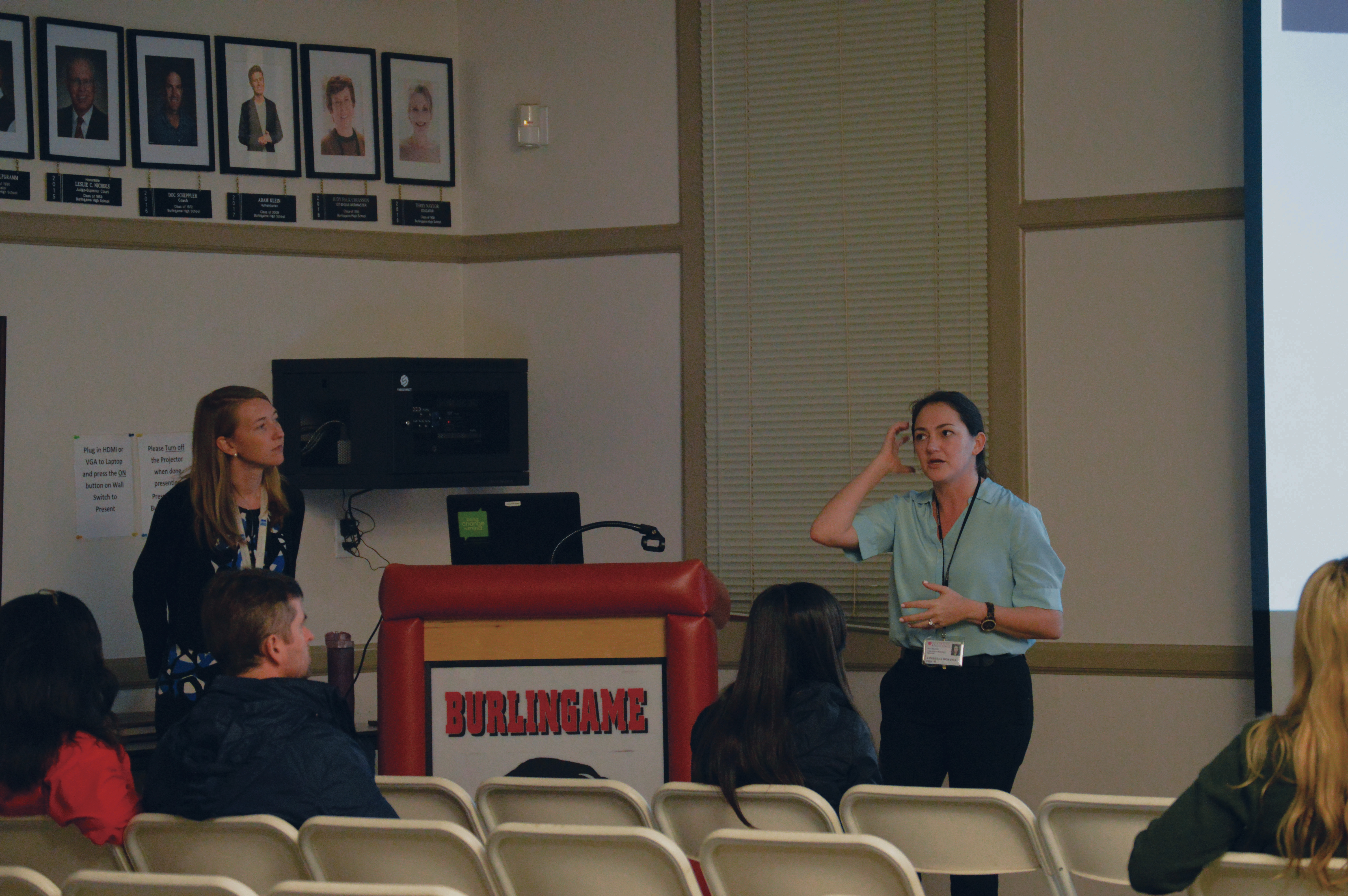
Rosania and Matheson speak to parents about warning signs of eating disorders.
Child Psychology Fellows Dr. Kimberly Rosania and Dr. Brittany Matheson gave an informational presentation on eating disorders on Jan. 18 at Burlingame High School. Rosania and Matheson spread awareness about eating disorders and encouraged audience participation in Stanford University’s eating disorder study.
Rosania began by addressing common misconceptions about eating disorders. For example, she explained that overweight individuals are more likely to develop eating disorders than those who are underweight.
“[Overweight people] in particular are at increasing risk for developing an eating disorder in the process of attempting to lose weight,” Rosania said. “Kids who are overweight are guided by very well-intentioned pediatricians to try to lose weight, and in that process [may] develop full-blown anorexia.”
Roberta Lighty, a health teacher at Mills High School, attended the presentation to further develop her knowledge of eating disorders.
“I learned a lot about the twisting of the mind,” Lighty said. “I knew that [eating disorders are] a psychological concern, and it should be [discussed] more in our mental health issue units, as opposed to nutrition.”
Rosania also discussed why eating disorders have the highest mortality rate of any mental illness.
“Having an eating disorder for a lot of people is like having a constant voice telling you you’re not good enough,” Rosania said. “For a lot of people, the longer and longer [they] live with one, it becomes too much, and they take their own life.”

Anorexia is only one of many eating disorders among bulimia nervosa, binge eating disorder and avoidant food intake disorder.
“When you’re thinking of a really thin person with an eating disorder, we’re really just thinking of one specific eating disorder, and that’s anorexia nervosa,” Matheson said. “But there’s lots of other types of eating disorders where people might be totally normal weight, or even overweight.”
Rosania and Matheson advised parents to immediately take action at the onset of eating disorder symptoms.
“A lot of parents are waiting for that moment that [their] kid realizes [they have a problem],” said Rosania. “Parents are so critical [since] they kind of step in and say, ‘I’m going to help you get this treatment even though you’re not in a place where you can make that decision yourself.’”



